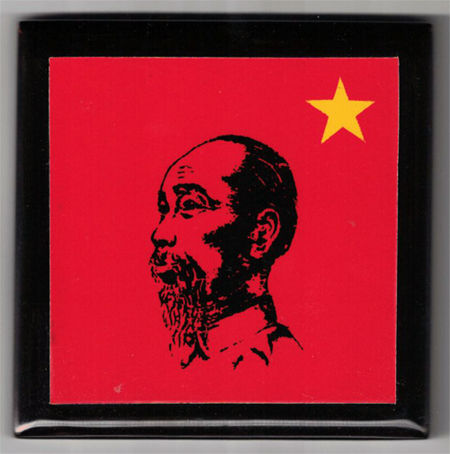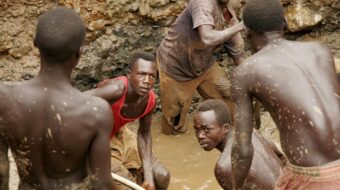
Seventy years ago on this day in 1945, hours after Japan’s surrender in World War II, Vietnamese communist leader Ho Chi Minh formally proclaimed the independence of Vietnam from France and the establishment of the Democratic Republic of Vietnam.
The proclamation paraphrased the U.S. Declaration of Independence in stating, “All men are born equal: the Creator has given us inviolable rights, life, liberty, and happiness!” and was cheered by an enormous crowd gathered in Hanoi’s Ba Dinh Square. The declaration also evoked the French Revolution’s Declaration of the Rights of Man and of the Citizen.
National Day (in Vietnamese: Ngày Quốc Khánh) is a holiday in Vietnam observed on September 2nd annually.
It would be 30 years, however, before Ho’s dream of a united Vietnam became reality, but he did not live to see it. He died on this same date, September 2, 1969, 24 years to the day since the declaration of independence.
Born in 1890, Ho Chi Minh left Vietnam as a cook on a French steamer in 1911, at a time when France owned all of Indochina (Vietnam, Cambodia and Laos) as a colonial power. After several years as a seaman, Ho lived in London and then moved to France, where he became a founding member of the French Communist Party in 1920. He later traveled to the Soviet Union, where he studied revolutionary tactics and took an active role in the Communist International. In 1924, he went to China, where he set about organizing exiled Vietnamese communists. Expelled by nationalist China in 1927, he traveled extensively before returning to Vietnam in 1941.
There, he organized a Vietnamese guerrilla organization – the Viet Minh – to fight for Vietnamese independence. Japan occupied French Indochina in 1940 and collaborated with French officials loyal to France’s Vichy regime [collaborators with Nazi Germany]. Ho had made contact with the Allies and aided operations against the Japanese in South China. In early 1945, Japan ousted the French administration in Vietnam and executed numerous French officials.
When Japan formally surrendered to the Allies on September 2, 1945, Ho Chi Minh felt emboldened enough to proclaim the independent Democratic Republic of Vietnam. But French forces seized southern Vietnam and opened talks with the communists. These talks collapsed in 1946, and French warships bombarded the northern port city of Haiphong, killing thousands.
In response, the Viet Minh launched an attack against the French in Hanoi on December 19, 1945 – the beginning of the First Indochina War. During the eight-year war, the Chinese communists supported the Viet Minh, while the U.S. aided the French and anti-communist Vietnamese forces. In 1954, the French suffered a major defeat at Dien Bien Phu, in northwest Vietnam, prompting peace negotiations but the division of Vietnam along the 17th parallel at a conference in Geneva. Vietnam was divided into northern and southern regions, with Ho in command of North Vietnam and Emperor Bao Dai in control of South Vietnam.
In the late 1950s, the Viet Cong, a national liberation guerrilla movement, emerged in the South to oppose the colonial puppet régime there. The movement had effective support from North Vietnam, which never accepted the arbitrary and now seemingly permanent division of the country. Beginning in 1964, Vietnam withstood a decade-long military intervention by the United States. The Vietnamese national forces achieved victory just in time for May Day 1975, finally succeeding in reuniting North and South Vietnam. Saigon, the capital of South Vietnam, was renamed Ho Chi Minh City, and September 2 could be celebrated as National Day throughout the land.
Adapted from This Day in History and Wikipedia.
Image: Ho Chi Minh depicted on a button. The yellow star on a red background symbolizes the flag of Vietnam.

MOST POPULAR TODAY

Zionist organizations leading campaign to stop ceasefire resolutions in D.C. area

High Court essentially bans demonstrations, freedom of assembly in Deep South


Afghanistan’s socialist years: The promising future killed off by U.S. imperialism

Communist Karol Cariola elected president of Chile’s legislature






Comments